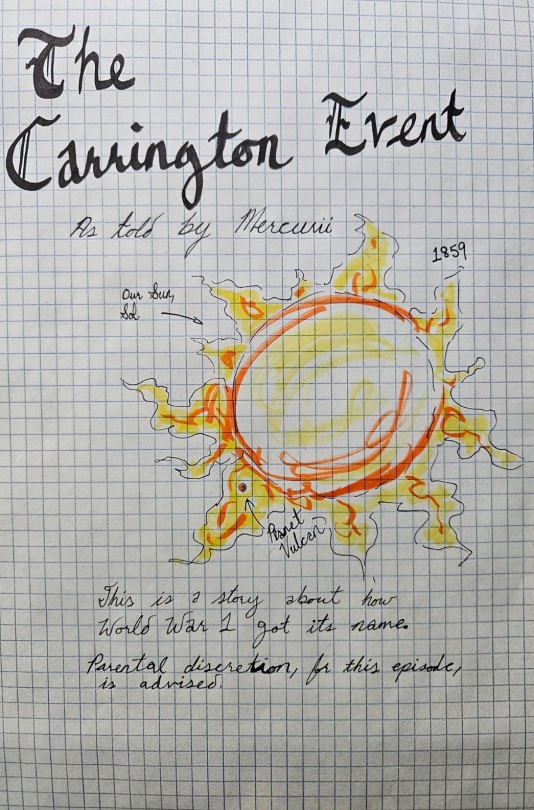#planet vulcan
Text
VULCAN S'PRING
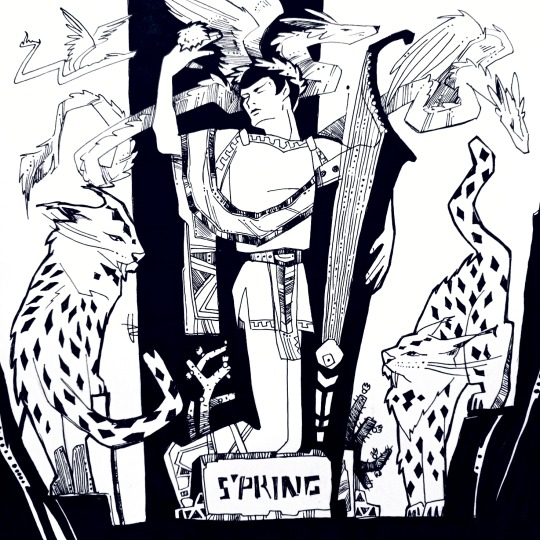
The picture shows: Spock, ka'artira, le'matia, windgons and tribble.
I painted this art in honor of spring.🎨✊🔥🖖
#Spock#spock fanart#s'chn t'gai spock#spock/kirk#mr spock#planet vulcan#tos spock#Tos#star trek tos#star trek fanart#star trek#Art#modern art#Lyra#Spring#springtime
285 notes
·
View notes
Photo
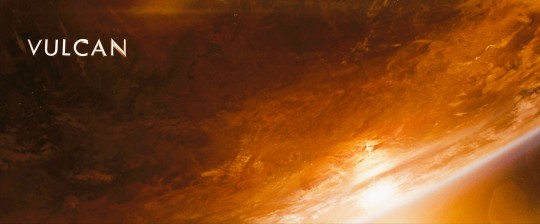
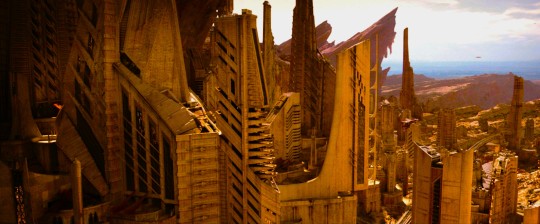

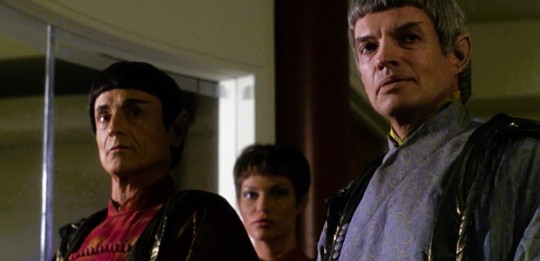



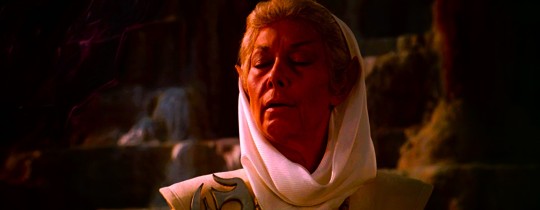
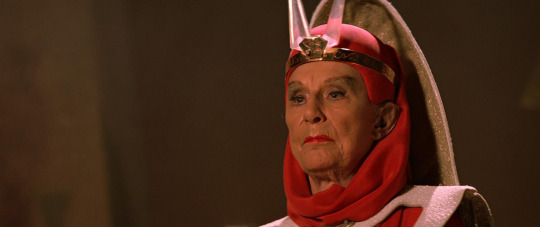
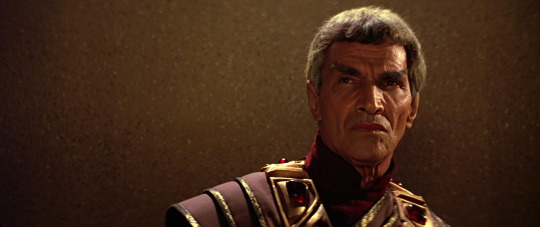


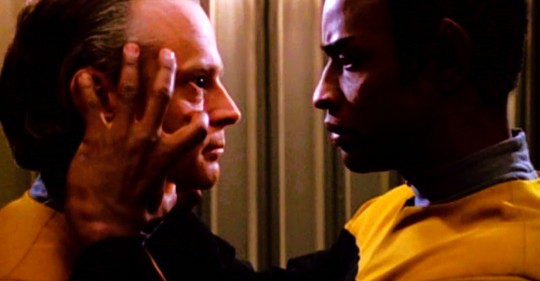
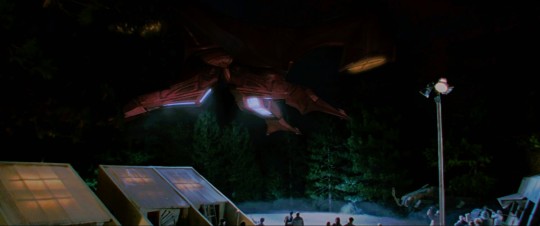
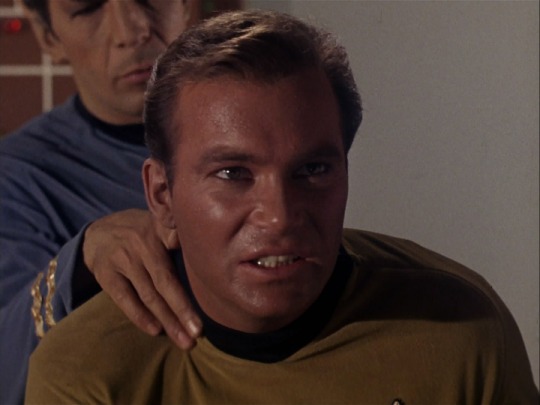

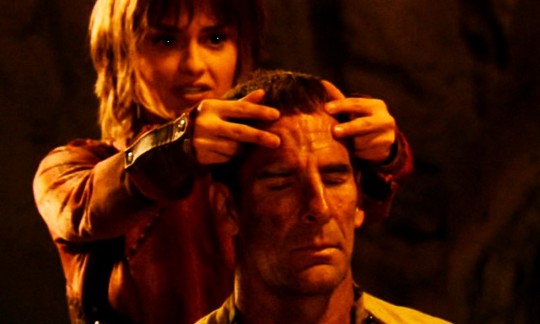

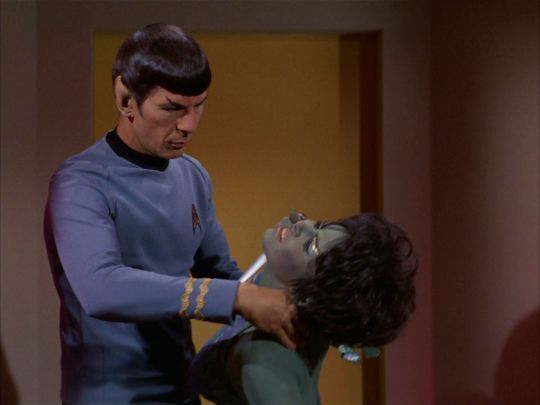

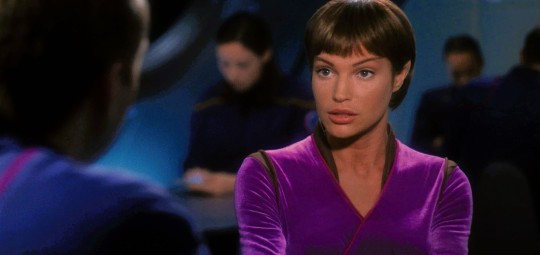

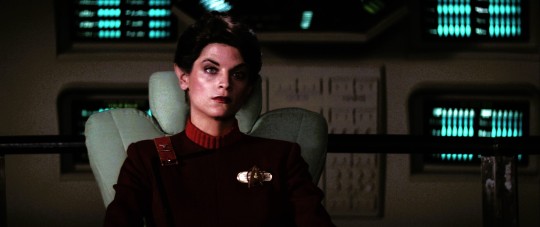
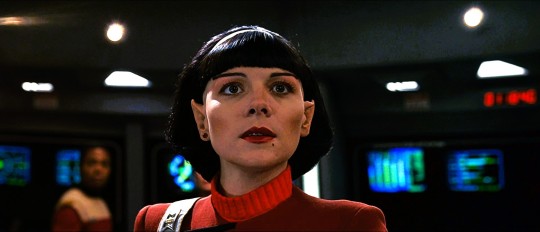
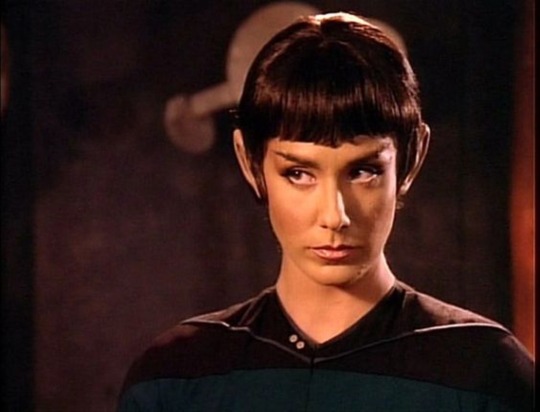



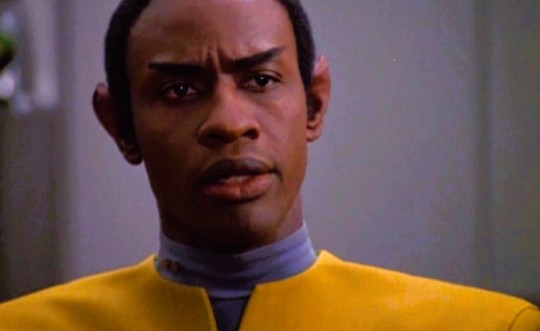



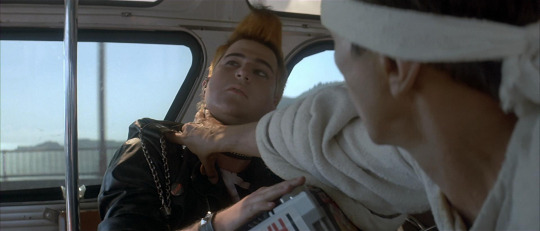




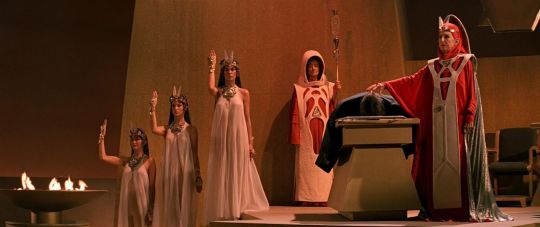

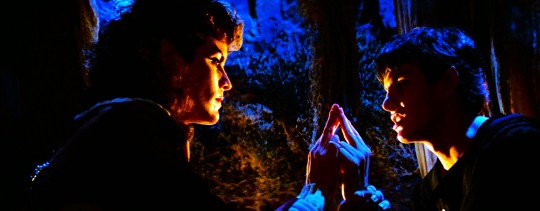
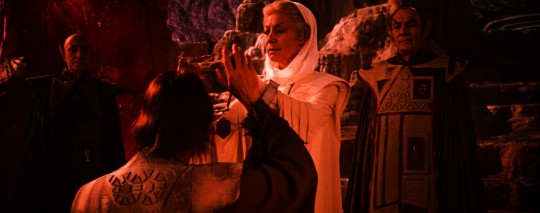
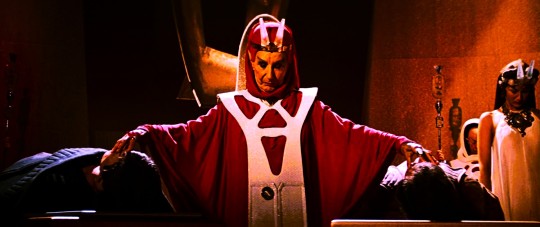




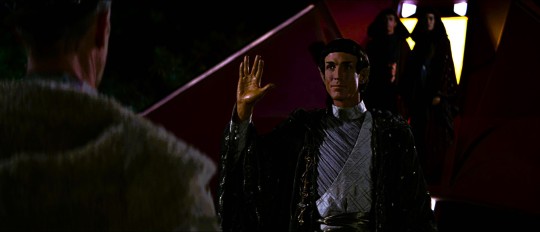
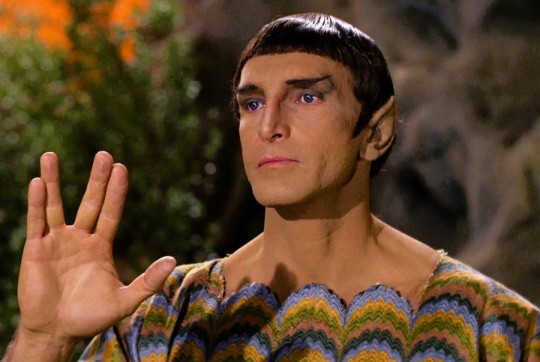

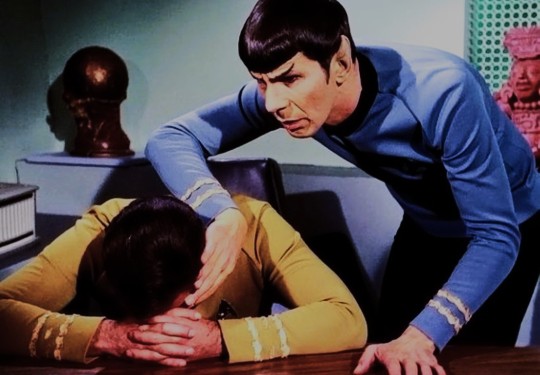




#STAR TREK#Vulcans#planet Vulcan#Mr. Spock#Leonard Nimoy#Zachary Quinto#T'Pau#Celia Lovsky#T'Pring#Arlene Martel#Lt. Saavik#kirstie alley#Lt. Valeris#Kim Cattrall#Sarek#Mark Lenard
693 notes
·
View notes
Text
Differences between day to day life on Vulcan and on Earth
• Weekdays
On Earth, traditionally, week lasts seven days. Typically, five of those are working days and two are not. On Vulcan, the week lasts five days, honoring the five basic tenets of Vulcan philosophy (See: 'Surak's Construct'). Four days are working days, and one is a free day. It is meant to honor the fifth tenet - privacy, as it allows a person to tend to their private affairs.
• Workday
On Earth an average working day would last eight hours out of the twenty four there are in the day. On Vulcan, the day is slightly longer, but the average Vulcan still works about eight hours a day. That is, however, often divided into two four hour periods with a two hour break in the middle, when the temperature piques. It is a well liked carry over from times before climate. control.
• Meals
On Earth, the typical schedule includes two bigger meals, one in the morning and one in the afternoon. Due to the high temperatures many Vulcan regions reach in mid-day and Vulcan physiology, it is customary to eat two meals during the day, one early in the morning and one late in the evening.
Meals are usually taken in silence, however, conversation is commonplace when only drinking beverages.
High and low tables are equally common on Vulcan, however the low table setting is considered more traditional and hence, formal.
The idea of 'cocktail party' has been introduced to Vulcans early in the Earth-Vulcan relations, however, it didn't stick, mostly due to the fact that the art of dividing time between eating and talking was never discovered on the planet. During the few that did take place, most of the Vulcan guests either talked and didn't eat or ate and didn't talk.
As it is custom on Vulcan to avoid touching food with one's hands, there are many more kinds of utensils that enable one to eat almost every conceivable type of food that way.
• Letters
Vulcan has, essentially, four separate alphabets - El'ru-Kitaun (handwriting), Vanu-Tanaf-Kitaun (calligraphy), Gotavlu-Zukitan (standard print) and a modernized print that gains popularity in bigger cities. While most citizens are capable of reading all of them, it is common for city residents to only be able to write in calligraphic script by hand, as every-day handwriting is not as popular there as it is in rural regions.
• Clothes
It is, to say the least, not customary for adult Vulcans to wear split garments in a way that is visible. If one is wearing any kind of trousers or bloomers, it would ussually remain hidden underneath a long robe. The only circumstances, in which it wouldn't be considered a bit unusual to wear visible trousers are sports, manual labor, travel by foot or on beastback, and work in which loose fabric could cause danger, for example on a space vessel That is the reason for the skin tight garments commonly worn by the crews of Vulcan spaceships.
• Windows
It is something that might easily confuse and Earthling, but Vulcan buildings often lack glass in the windows. It is very common, especially in houses, that windows are only covered with curtains, as it allows better air circulation without unnecessary air conditioning. Glass is, however, used in a different manner. Many houses have a basement with a glass roof, functioning as an indoor greenhouse.
• Holidays
Vulcan Clan holidays (weddings, betrothal, historic anniversaries, successful kahs'wan celebrations, etc.) as opposed to the common holidays, which are ussually celebrated in private, are typically long and involve gathering tens or even hundreds of people in a Clan Home. (It is a big building belonging to someone in the clan, most often the Matriarch. Every member of the Clan has the right to come and stay there however long they please.) If the Clan Home is too small by itself, tents would be put up on the grounds.
Vulcan employers are typically very liberal with granting leaves of absence for Clan/House/Family reasons (Vulcan, similarly to Earth, is considered to be a post-scarcity world, so with the exception of people bound by contracts eg. Starfleet, the majority doesn't strictly need to work. It has its benefits, of course but missing a few weeks worth of pay doesn't change much.), so one can often expect to stay at such celebration for days, or in some cases, weeks.
• Laundry:
Vulcans have a slightly different attitude towards it then the one cultivated on Earth. Outermost garments are generally only washed if they get dirty and even then, they would ussually be only spot cleaned with water and detergent. Traditionally, one would only wash their underwear with water, while the rest of the clothes would be regularly aired and layed out in the sun. While in the modern day, sonic cleaners are getting more and more popular, the traditional route is still very much in use, as it is very much sufficient to maintain both hygiene and neatness.
#vulcans#vulcan#vulcan headcanons#vulcan culture#star trek headcanon#planet vulcan#vulcan language#vulcan traditions
82 notes
·
View notes
Text
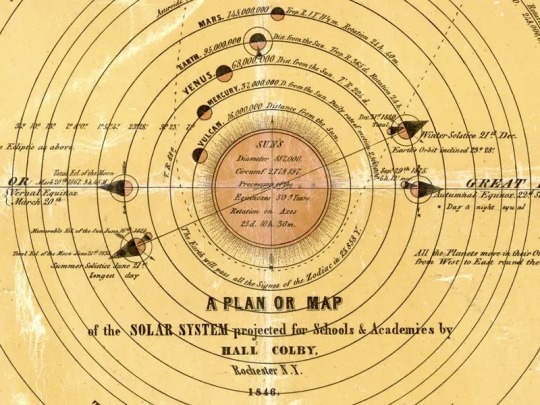
On this day:
THE PLANET VULCAN
On March 26, 1859, at a small, homemade observatory in the French countryside, Dr. Edmond Modeste Lescarbault observed a tenth planet, beyond Mercury, traveling across the sun. The doctor first noticed a dot in the upper left-hand edge of the sun. After leaving to attend to a patient, he returned hours later and continued following and documenting the dot's slow descent. His evidence convinced the esteemed astronomer Joseph Le Verrier of the existence of this tenth planet: the planet Vulcan. Its gravitational pull explained Mercury's moving closer to the sun by forty-three inches every 100 years.
The first meeting between Lescarbault and Le Verrier was brusque. Le Verrier, irritated after walking nineteen kilometers (twelve miles) from the train station to the doctor's house, was also outraged that nine months had passed before the doctor mentioned the discovery. Le Verrier was also daunted to discover that the doctor had used a large old watch with only minute hands as a chronometer, counting out the seconds with the aid of a pendulum made from an ivory ball and a piece of silken thread. However, the doctor's calculations for the distance of the planet from the sun, worked out on an old pine plank, were sound. He also predicted a return of Vulcan in March 1860. It never appeared.
In 1878, professional astronomer James Watson in Wyoming and Dr. Lewis Swift in Colorado both observed an eclipse of the sun. Each independently reported seeing a celestial object that did not appear in any of the professional charts. Dr. Swift said, "[T]o my mind, without any doubt, it is the long-sought Vulcan. I have never made a more valid observation nor one more free from doubt." Unfortunately, in spite of Lescarbault's sighting and hundreds of other sightings over the years, Vulcan has never been proven to exist.
Text from: Almanac of the Infamous, the Incredible, and the Ignored by Juanita Rose Violins, published by Weiser Books, 2009
15 notes
·
View notes
Text
okay can some astronomy nerd help me out here: how many moons/planets are visible from Vulcan?
I know it's locked in geo-orbit with T'Khut, which itself has a moon (T'Rukhemai), as well as being visibly close to Delta Vega, but the memory alpha site is unhelpful as to which of these are acutally visible from the planet surface.
Technically, are all three visible?
#star trek#planet vulcan#planet nerddom#yes this is important for a fic I'm writing#delta vega#T'Khasi and T'Khut#orbits
2 notes
·
View notes
Text
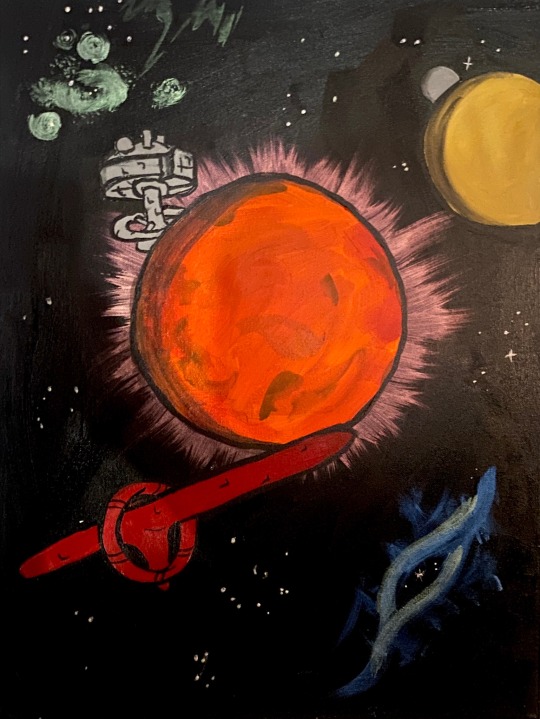
The World
4 notes
·
View notes
Text
youtube
0 notes
Text
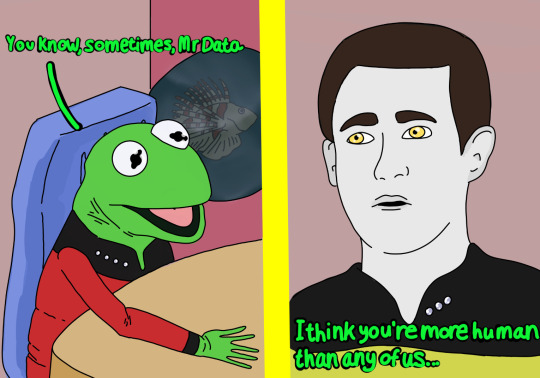
Emotional scene from Muppets Star Trek.
#star trek#muppets#data tng#picard#tng#kermit#fan art#next gen#okay so like…#this is obviously mostly intended as a joke but also#human is arbitrary#especially in star trek where every other planet seems to have its own sapient nonhuman species#human is fucking arbitrary#data holds humanhood as the ideal because he was built by humans#but also because the qualities that are most often used to define him as 'lesser' are qualities that humans especially seem to prize#nobody's tries to claim that vulcans aren't real people because they don't feel emotion#or that ferengi don't show enough empathy to qualify#we don't get any betazoids going around saying that true personhood is defined by how good you are at mindreading#in a world where the enterprise was crewed by muppets#and data genuinely was the closest thing to a human onboard#Measure Of A Man would have been about Picard trying to prove that you can't have someone dismantled#just because they can't sing or travel by map
2K notes
·
View notes
Text

#star trek#star trek tos#tos spock#s'chn t'gai spock#star trek fanart#spock fanart#planet vulcan#art#illustration#sehlat
213 notes
·
View notes
Text
"I will need a Vulcan desert soft suit and boots, and a small selection of streetwear circa 8877 Vulcan years. The carry bag should be of the same period."
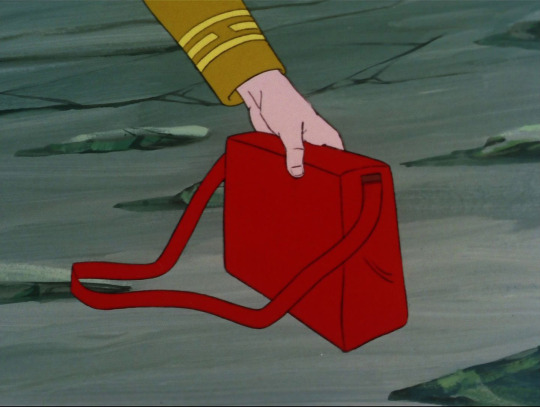
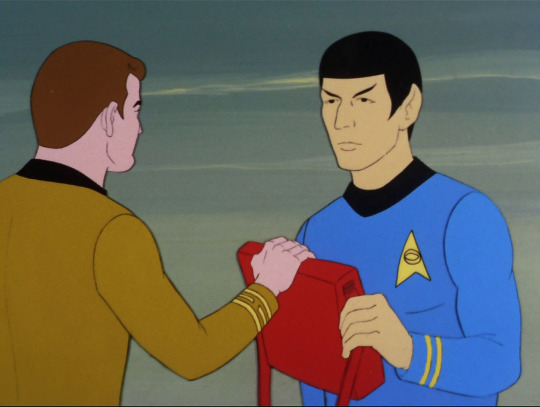

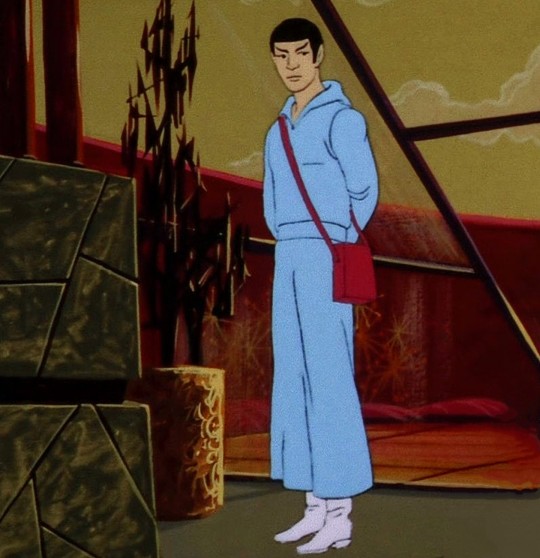
Star Trek the Animated Series | S1E2
#jim got his bf the purse he wanted :')#VULCAN STREET FASHION#baby blue is logical#so are white boots on a planet covered in red dirt#with heels#yes#“soft”#very important it is a SOFT suit#fashion#vulcan#star trek#animation#the animated series#star trek tos#spirk#spock#captain kirk#1970s#supportive boyfriend jim kirk#katpost
1K notes
·
View notes
Text
For whatever reason, my Tumblr malfunctioned and caused a question which I had been sent to be removed, so I regrettably cannot credit the person who asked it. The question regarded Vulcans as neighbours, and them living in blocks of flats.
I am very grateful for this question, and here is my take on the matter. It is, of course, just my imagination, not canon in any way.
Vulcans as neighbours.
I imagine that Vulcans tend to live in the proximity of their family and their House. The most prominent Houses may have residences or fortresses that can easily house a thousand of people comfortably, and even more with some crowding. The Houses of lower status will usually still have at least one big house the families can flock to for holidays or in times of hardship. Members of the same family would often live in one, multigenerational household (in rural, sparsely populated regions) or in neighboring houses or flats. It would be quite common for an entire block of flats to be shared by people who are all related. Since the typical living arrangement is as described, the only people on Vulcan who live apart from their families are these who moved from their hometowns for some reason, these who do not have any surviving family (which is extremely rare, since Vulcans consider even the furthest family ties to be important, and a person who lost their immediate family would be quickly 'adopted' into some other part of their House or Clan), or immigrants.
This bit of information is necessary to understand the attitude many Vulcans have towards their neighbors.
A person who spent their entire life living close to their family may get rather lonely when removed from that environment, even with their telepathic bonds. Thus, many Vulcans who move, for example to study or work, opt for at least semi-communal settings, like various dormitories, which are especially common in academic towns. This setting allows both privacy and a sense of community, both vital for a Vulcan.
When living in a block of flats with strangers, they would usually be very careful when initiating social interactions, as it is seen as impolite to infringe upon someone's privacy in any way. Still, they often wish to acquaint themselves with their neighbors and sometimes choose the strangest ways to do so. These can range from asking for help in matters that certainly don't require it to leaving a full bag of fresh vegetables on someone's doorstep.
For an immigrant that moves into a mostly Vulcan neighborhood, the most difficult thing is to not get involved into local social life. Vuclan communities are generally extremely open to anyone willing to accept how they function. Because of that, many people who come to Vulcan for a work assignment or to study stay for life.
When Vulcans move to a different planet, they ussual seek other Vulcans and form communities there, as living without that support net is generally difficult for them. Community isn't only a way of satisfying the needs for interaction with others, it is also a support net that aids self control, which is very important for them. It is less likely for someone to lose their nerves when everyone else is calm.
In the end, while Vulcan culture treats privacy as one of the most important rights of an individual, Vulcans are naturally social beings, just as Humans, or maybe more due to their telepathy. That also connects to the fact that in the light of vulcan philosophy, an individual is responsible for the good of the society. (The needs of the many outweigh the needs of the few, or the one.) Thus, Vulcans certainly care for their neighbors.
If you have any other ideas, questions or suggestions, please, share them.
Live Long and Prosper
#vulcans#vulcan headcanons#vulcan culture#star trek#vulcan#star trek headcanon#planet vulcan#answered ask#vulcan anthropology#vulcan philosophy
60 notes
·
View notes
Photo
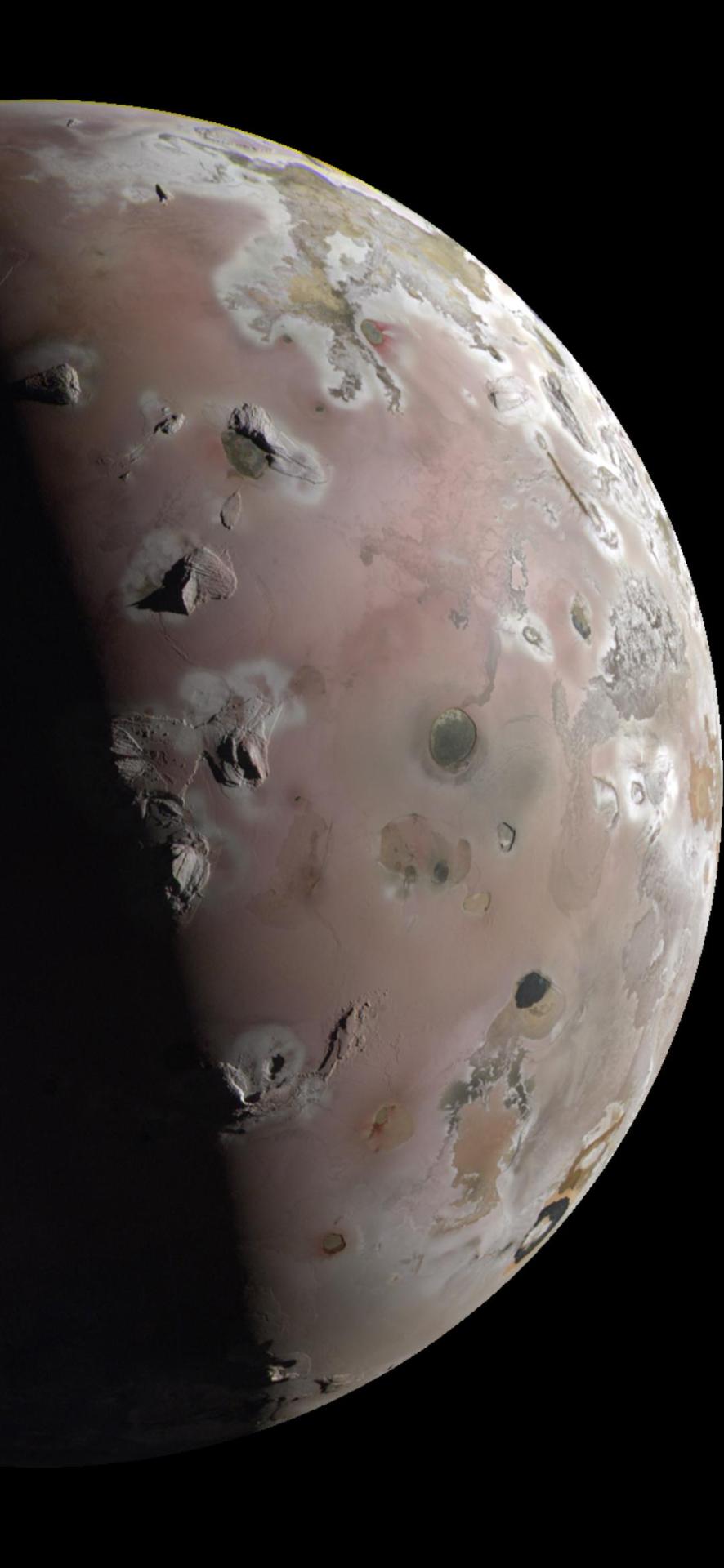
NASA’s Juno Gets a Close Look at Jupiter’s Volcanic Moon Io on Dec. 30, 2023 (via u/enknowledgepedia on r/spaceporn)
#io#jupiter#space#planets#solar system#moon#juno#nasa#nasa jpl#geology#astronomy#spaceporn#enknowledgepedia#reddit#vulcanism#volanos#dec 30 2023#landscape#surface#lunar surface#texture#topography#photography
862 notes
·
View notes
Text
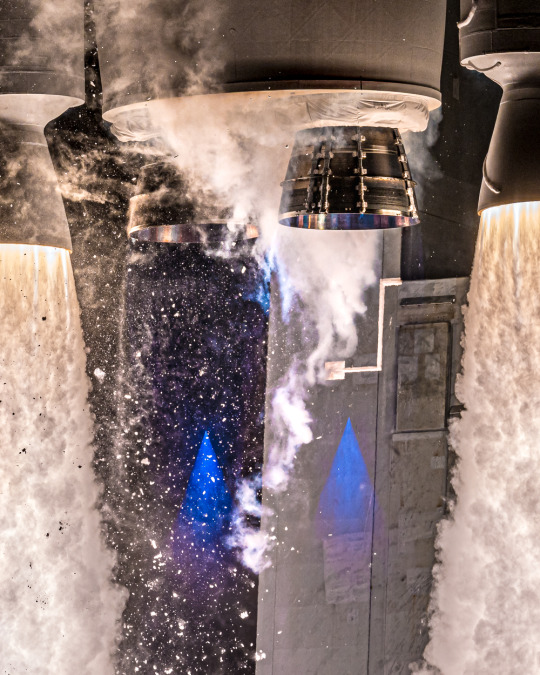

Liftoff of ULA Vulcan l John Kraus
l First U.S. commercial robotic launch to the Moon l ULA(United Launch Alliance) l more info at NASA
#rocket launch#vulcan#ULA#astrophotography#nasa#artemis mission#moon#science#stars#solar system#astronomy#galaxy#planet#cosmos#universe#sky
637 notes
·
View notes
Text
I am a simple person, I am not immune to “Vulcan who wears heavy robes taking them off to help the Human with something and revealing they have nice arms, leaving the Human a blushing and distracted mess”
#the chivalry of helping them plus nice arms? 👀 I’m weak for it#in the current imagined scenario they need help with a machine that broke in their house#it’s supposed to be like. a machine that controls the temperature of the soil so the Human can raise plants from other planets#star trek#Vulcans#Humans
121 notes
·
View notes
Text
"The Doctor is a Vulcan!" Wrong. They've got two hearts and two dicks, they're clearly a Klingon
#Doctor who#although the touch telepathy and desert planet with a penchant for robes makes a strong case for Vulcan
77 notes
·
View notes
